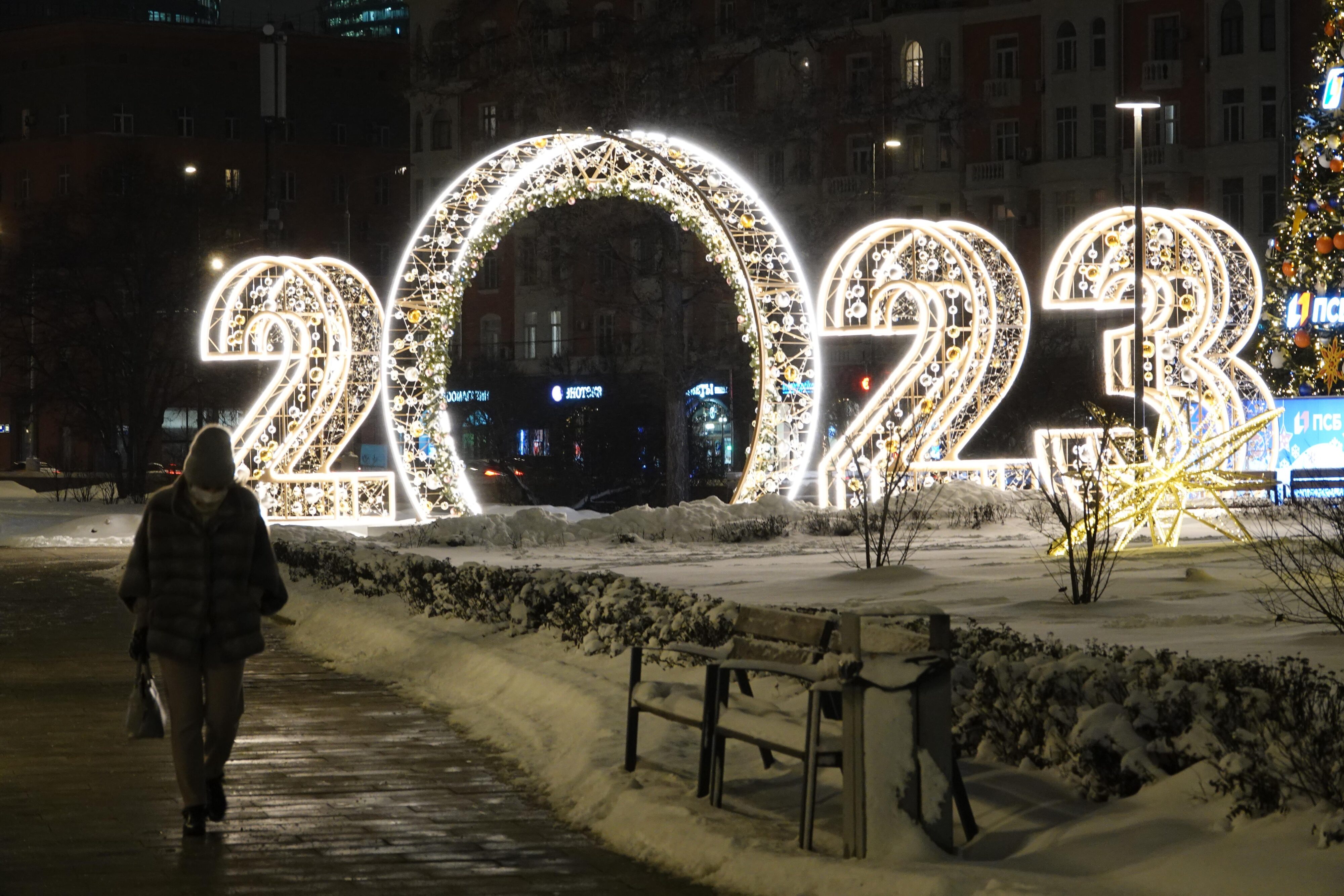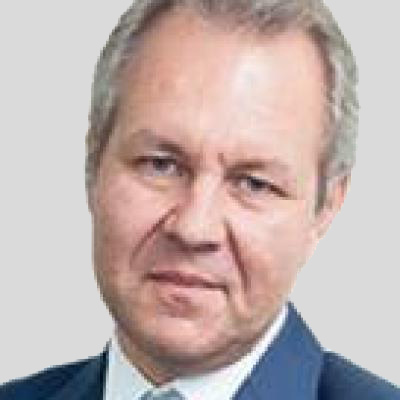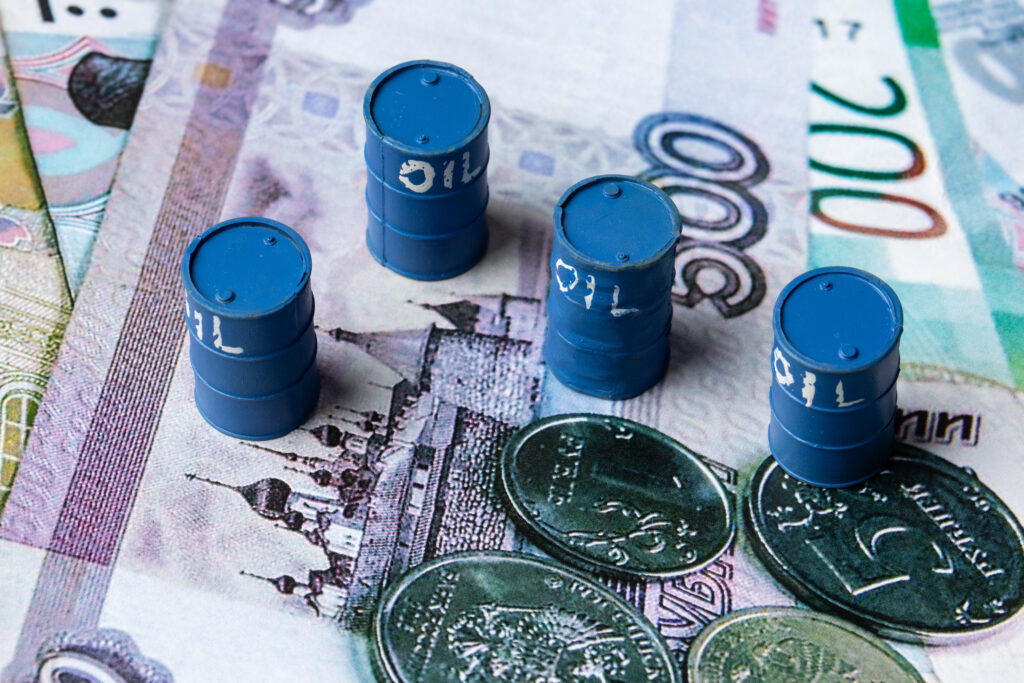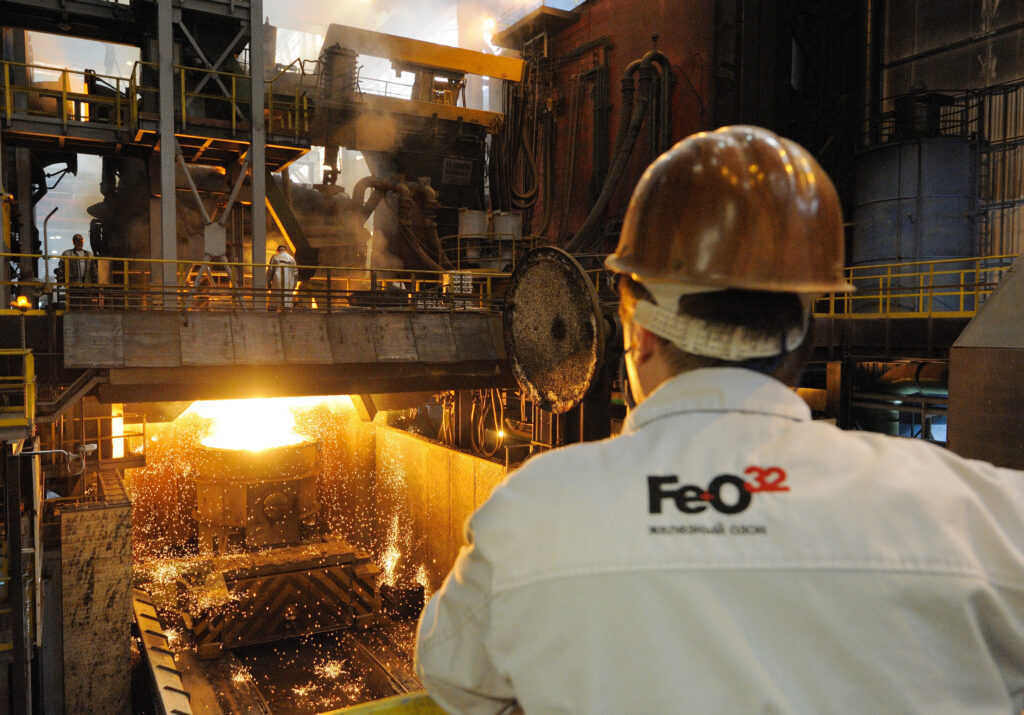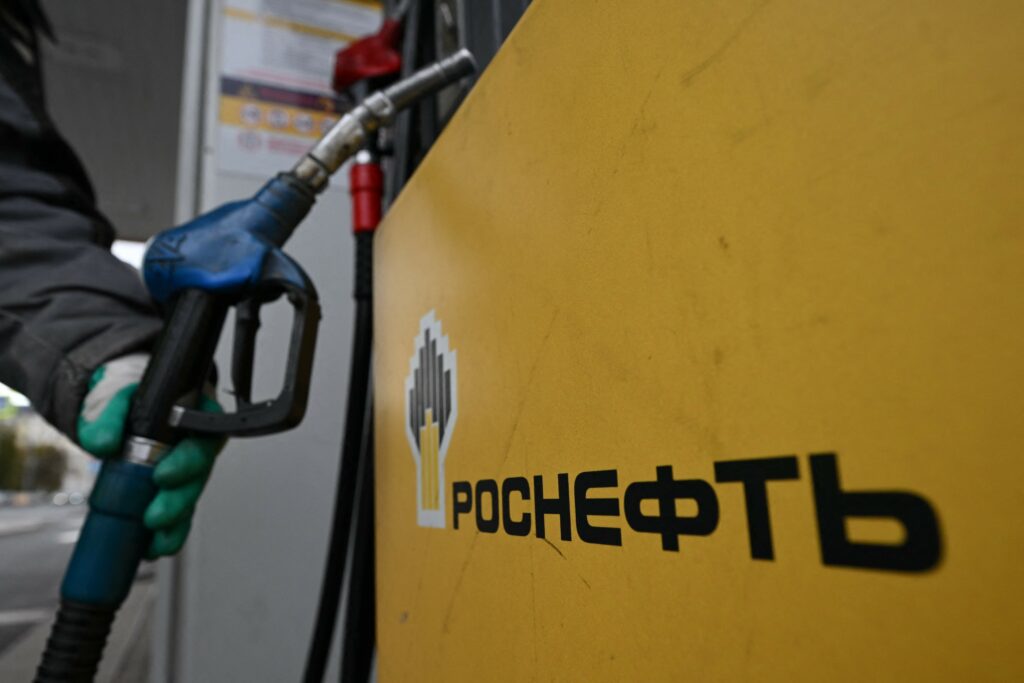The main factor affecting the Russian economy in 2023 will be the ongoing war in Ukraine, the end of which is nowhere in sight. Today, the Kremlin has no chance of achieving a confident military victory; even holding onto territories seized after February 24 looks tenuous. However, there is also no readiness to admit the gruesome failure of Putin’s adventure. This means Russia, which spent about 5 trillion rubles (approximately $ 78bln) on the war this year, will need to finance this «special military operation» even more.
There three main reasons for further expenses: firstly, the number of soldiers and officers involved in this war will rise — the compensation and insurance payments promised to them will amount to at least 1 trillion rubles (approx. $ 15.5bln). That figure is without additional mobilization, which is far from unlikely. Secondly, in 2022 Russia used equipment and weapons in Ukraine produced years ago. All of that material cost was reflected in previous budgets. In 2023, it will need to produce or purchase new kit, which could increase spending by 1.2−1.5 trillion rubles ($ 19-$ 23bln). Thirdly, the annexation of large Ukrainian territories will require extra expenses to restore and ensure a minimum acceptable standard of living for the «new Russians». This could all cost hundreds of billions of rubles.
Thus, it is possible to put the economic cost of the war and related tasks at around 7.0−7.5 trillion rubles ($ 108-$ 115bln) — roughly 22−24% of budget spending (assuming that the overall expenditures will amount to at least 30 trillion rubles, slightly higher than the planned value), or 6% of GDP.
Given that more than 4 trillion rubles ($ 62bln) is allocated for «national security» and «law enforcement» activities, the cost of security-related agencies will significantly exceed a third of all budget spending.
A delayed hit from sanctions
Sanctions will be first felt in full only in 2023 as most significant restrictions on the export of oil came into force only at the beginning of December. So far, the impending rupture of «gas» relations with Europe has been more than compensated by prices that brought Gazprom’s revenues to a record level. Even at the end of this year, the surplus of Russian foreign trade should also still reach a record high. Those numbes will not be easily reached next year. The roughest estimates should come from how the dreams of Russian strategists about «oil for $ 300» did not come true. On the contrary, sanctions and embargoes caused a general decline in prices. It is premature to say that they will fall well below current levels, but a $ 75-$ 90 price range for Brent with Urals trading at an average discount of $ 20 looks like a realistic scenario. This means the Russian budget, while maintaining the same volume of oil sales on foreign markets, will lose up to 1.5 trillion rubles versus the current year, when oil and gas revenues are expected to amount to more than 10 trillion rubles and with a much more likely reduction by 15−20% – up to 2 trillion. For gas, the drop in exports will be at least 50% compared to 2022, the average export price will drop by more than 40%, even without taking into account the delay required by Turkey until 2024, so here the budget will lose at least 800 billion rubles more. The result will be an increase in the deficit of the federal budget from the expected 2.4−2.5 trillion rubles this year to no less than 5 trillion next year. The prognosis of the Ministry of Finance is a deficit of 2% of GDP or 2.9 trillion rubles.
It must be said, all these extrapolations do not look catastrophic. The authorities have the opportunity to finance the deficit from the funds of the National Welfare Fund (nominally they amount to 11.4 trillion rubles, and their liquid part reaches 7.6 trillion), as well as through borrowing (since the beginning of the fourth quarter, the Ministry of Finance has sold federal bonds for more than 1.4 trillion rubles at par, with a plan of 150 billion). The Bank of Russia may also become a source of additional funds. Nor does there seem to be a serious risk of inflation, as consumer demand remains subdued. As exports decrease, the role of customs duties in filling the budget will decrease, while the share of domestic taxes will increase. This will make the authorities’ desire to depreciate the ruble a less obvious trick to increase the amount of ruble revenues in the budget: therefore, the exchange rate next year will not undergo significant changes, adjusting for inflation.
The main problem, however, is the internal destruction of the economy in the face of the disappearance of the usual institutional framework. In 2022, the right to intellectual property was practically destroyed in Russia, the rights of investors were officially recognized as unequal depending on the country of origin of investments; in fact, the assets of hundreds of companies that left the country were requisitioned; preparations have begun for the confiscation of the property of emigrants. Business faced a lot of restrictions and threats; traditional suppliers left the market; there was a shortage of components, spare parts, equipment maintenance services. The decrease in demand caused the need to reduce costs due to product quality. At the same time, during the outgoing year, all these blows fell mainly on entrepreneurs and remained barely visible to consumers. Next year, a significant part of these problems will manifest itself, and the crisis will become more noticeable, which will cause many citizens to realize the seriousness of what is happening — and this means a new reduction in spending (already at the end of 2022, the share of funds saved by Russians «for a rainy day» reached long term highs) and a new contraction of aggregated demand.
Practically the only source of support throughout the next year will be state consumption and social payments, which will surely increase in the third and fourth quarters as the campaign for the re-election of President Putin for the next presidential term builds up to March 2024. Therefore, there is no need to talk about any GDP growth next year. On the contrary, with a high probability, the decline will be stronger than this year, reaching 4- 4.5%. Inflation will still not bother the authorities, dropping to 6−7%. The main drivers of the crisis will be construction, which will have to survive in the face of a reduction in preferential mortgages; damaged prospects for metallurgy; and weak wholesale and retail trade.
Serious problems will be noted in the labor market. Such an outflow of the active population from the country as in 2022 has not been seen since the Civil War. By the end of this year, I would consider the most realistic emigration estimate of 900,000 to 1 million people. The emigration trend in 2023 will continue at the expense of entrepreneurs who are striving to «finalize their affairs» in the country for the time being. Similarly it will hit family members of those who left, those who were not forced to flee in a hurry, but do not expect anything good from the development of the situation. Already in In 2022, the net capital outflow will reach record levels — the Bank of Russia has recently predicted it at a level of more than $ 250 billion; the bulk is accounted for by cross-border transfers of individuals, and this trend will not disappear next year.
Labour shortages and emigration
As I recently wrote on Riddle Russia, sooner or later the authorities will have to regulate attempts to exit the country, which will be a major turning point for the Russian skilled labor market; no benefits will outweigh the risk of staying in the country. However, as noted earlier, the current emigration will affect the economic situation with some time lag (with the exception of a number of narrow sectors in which the work of a fairly limited number of creative specialists is critical). Rather, we can talk about a gradual decline in the quality of human capital. It will not be a massive and immediate workforce destruction: most of those who left still represent either those who worked in companies with foreign participation, or were guided by the global labor market through remote participation, or worked individually, without being an important link for corporations or between them.
In 2023−2024, the main trend in the market of creative specialties and managers will be its serious feminization, with a trend towards an increase in average salaries. For the next few years, the Russian labor market will become a market in which the right to choose will move from employers to employees. Getting people to industries that the state will require to develop at a faster pace (for example, the defense industry and related sectors) will be very difficult.
Betting on unrealistic geopolitics
In addition, 2023 will be a milestone in the development of the Russian economy in one very important sense.
From a geopolitical point of view, the Russian authorities were focused on achieving quick success in the war with Ukraine. According to the Kremlin, a quick win should probably have prevented the West from responding to the actions of Moscow. Indeed, the very decision to impose an embargo on Russian oil was taken in the EU in early June — more than a hundred days after the start of the war. If by this time Russian troops were stationed at the Polish and Hungarian borders, it is likely that the energy sanctions simply would not have happened. The same applies to a number of other restrictive measures that were introduced and are being introduced in response to the intensification of Russian aggression against Ukraine and in connection with the emergence of information about regular war crimes. It is likely that even today the Kremlin retains the illusion that a continuation of the war or, for example, an energy shortage in Europe. will force Western countries to ease sanctions. In other words, the main calculation was and is being made on the temporary nature of the economic pressure on Moscow.
In this context, 2023 will be the time when this attitude will have to change. If a few months ago, Western countries were ready for certain compromises with regard to the Kremlin if Russia showed interest in ending the conflict, then 2023 will clearly turn out to be a «time of no return». Even peace negotiations and a cessation of hostilities may not lead to a softening of positions. As the Russian authorities become aware of this circumstance, they will adapt their economic policy to new realities; so it should be assumed that autarkic elements will become more pronounced, tax policy more stringent, and attitudes towards property rights even more conditional. In 2022, the Russian economy retained the features of normality, and the war really remained for the time being a «special military operation» — but in 2023, the country, most likely, will already fully feel the consequences of Putin’s adventure.
Thus, summing up, it should be emphasized that 2023 will be a landmark year for the Russian economy, but not catastrophic. Having taken the first step into the abyss in 2022, the Kremlin will cut off all opportunities for normalization in the coming year, the country will finally turn into a pariah, and by the beginning of 2024 the developed countries will completely abandon the previously critically important Russian supplies — gas, oil, metals, uranium, etc.
This, in turn, will create additional conditions for tougher sanctions in the future. Moscow, for its part, will increase fiscal pressure on the economy, increase restrictions on the operations of its citizens abroad, and formalize the economic status of the emigrated «enemies of the people.» At the same time, we can confidently say that neither in 2023 nor in 2024 will there be any large-scale economic crisis in Russia: there are sources to cover the budget deficit, there are no prerequisites for an explosive growth in inflation. Considering that the incomes of the majority of Russians depend in one way or another on the budget, one should not expect their radical decline: it will not be the level that will fall, but the quality of life — as society and the economy become primitive in all its manifestations.
